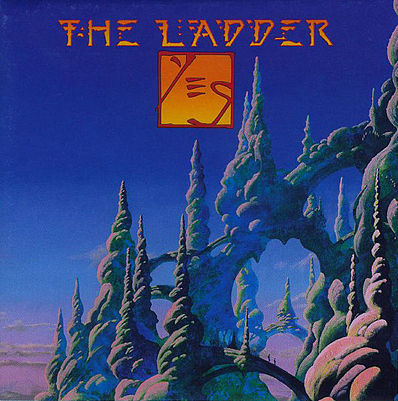
The Ladder (1999)

1. Homeworld (The Ladder)
2. It Will Be A Good Day (The River)
3. Lightning Strikes
4. Can I?
5. Face to Face
6. If You Only Knew
7. To Be Alive (Hep Yadda)
8. Finally
9. The Messenger
10.New Language
11.Nine Voices (Longwalker)
What exactly makes a great Yes album? It’s a tougher question than it seems. This is a band that’s cycled through at least a dozen lineups over the decades—give or take a couple depending on how you want to count the revolving door. And even when they managed to keep the same roster for more than an album or two, there was never any guarantee of consistency. For every brilliant triumph, there’s a companion piece that lands with all the grace of a brick in a pond. Or worse, the proverbial turd in the punch bowl. Predictable? Never. Frustrating? Often.
Which is why it’s best to simply celebrate the moments when they do get it right—and with The Ladder, they did. Not coincidentally, this album followed one of the band’s all-time lows: 1997’s limp and aimless Open Your Eyes. The lineup is now a six-piece, with keyboardist Igor Khoroshev making things just a little more crowded (he’s what, the fifth or sixth keyboardist at this point? But who’s counting?). It’s a welcome addition—he doesn’t overshadow the sound but colors it in nicely.
One has to wonder if part of the credit goes to producer Bruce Fairbairn. Best known for his work with hard rock and metal acts, he might have seemed like an odd choice for Yes. But it turns out to have been inspired—Fairbairn coaxes out a polished, layered sound that feels unmistakably like “classic” Yes while also firmly rooted in the late 1990s. Sadly, he passed away before production wrapped, but his touch is everywhere here, giving the album a surprising cohesion and glow.
Importantly, The Ladder is nothing like the Trevor Rabin-led 80s records. That’s not a dig at Rabin, who deserves his due for modernizing the band’s sound in his era. But the Rabin period leaned on sharp edges and radio polish. This album is, for lack of a better word, warmer. There’s a contentedness here. They’re back to singing about cosmic themes, mysticism, Eastern spirituality—the kind of stuff that made the band so endearingly weird to begin with. You don’t have to share those beliefs to get swept up in the album’s positive, uplifting vibe.
Another smart move? No side-long, 20-minute epics. Don’t get me wrong—those pieces have their place in the Yes canon, and they’d just revisited that territory on Keys to Ascension and its sequel. But it’s clear they decided to park that style for a while here. Instead, you get songs that are tight (by Yes standards), with a couple running nine minutes or so. And let’s be honest—nine minutes is practically a radio single for these guys. It’s a welcome shift that keeps the album moving without sacrificing the band’s trademark sense of adventure.
It’s also worth pointing out that there’s a notable restraint with the keyboards. Khoroshev doesn’t grandstand with flashy solos. Maybe he was still finding his footing with the band. Or maybe everyone agreed to keep things more ensemble-focused. Either way, the approach works. The keys provide texture and atmosphere without dominating, allowing the songs themselves to shine. And they really do have that classic Yes DNA—lush harmonies, inventive arrangements, and a sense of wonder that too many prog bands forgot somewhere along the way.
Honestly, it’s hard to imagine any long-time Yes fan not finding something to love here. The production is crisp without being sterile. The songs deliver plenty of those signature turns and layered passages that invite you to lean in and listen closely. And there’s variety, too—the album plays it safe in a sense, but that’s exactly what this band needed after the messiness of the previous release. You could argue they weren’t pushing themselves into new territory, but with everything they’d been through, a confident return to form felt essential at this moment in their history.
Of course, being the late 90s, The Ladder didn’t get the attention it might have earned a couple of decades earlier. Classic rock radio wasn’t exactly rolling out the red carpet for new Yes material in 1999. But that doesn’t change the fact that this is one of their stronger outings. Even if you can’t immediate
Go to the Next Review
Go back to the main page